It’s always fun to drive a car. But sometimes, your car makes some shrill metal scraping sound while driving. At first, you are not able to even recognize from where it is coming.
Such scraping sound is difficult to detect and can cause extreme danger if not treated quickly. You might require the help of a qualified mechanic to fix it.
So, it’s necessary to figure out the culprit of this scraping sound as early as possible!
Contents
- Potential Reason For The Scraping Sound While Driving
- Steps You Can Take To Fix The Scraping Sound While Driving
- How To Prevent The Scraping Sound While Driving?
- FAQs on Scraping Sound While Driving
- Is it possible the sound is coming from inside the wheel?
- What if the scraping sound gets worse at higher speeds?
- Can a dragging parking brake cause a scraping noise while driving?
- Could something be wrong if only one side of the car makes the scraping noise?
- Why does the scraping only happen when I reverse?
- Conclusion
Potential Reason For The Scraping Sound While Driving
A car working fine isn’t supposed to make any weird noises. However, sometimes you will hear a scraping sound while driving so what does this noise mean?
This is an audible indicator that your car has a faulty component and needs to be repaired or replaced.
The scraping sound you hear while driving might be annoying and frustrating.
Before proceeding further, you should actually be aware of the possible reasons that are responsible for producing this sound. So just using the audio signals, you won’t be able to identify the failing component.
A few possible suspects liable for this sound include:
Saggy wheel bearing
This bearing plays an important role in keeping your wheel rolling. It makes sure that there’s little to no friction during the motion of the wheel. Friction can be caused if the wheel bearing doesn’t function properly.
So if you notice any scraping or grinding noise coming from your car while driving, noise is often heard when there’s a change in speed especially when accelerating the car, it’s a revealing sign that the wheel bearing can be saggy or loose.
Worst of all, it can cause excess wear in those components.
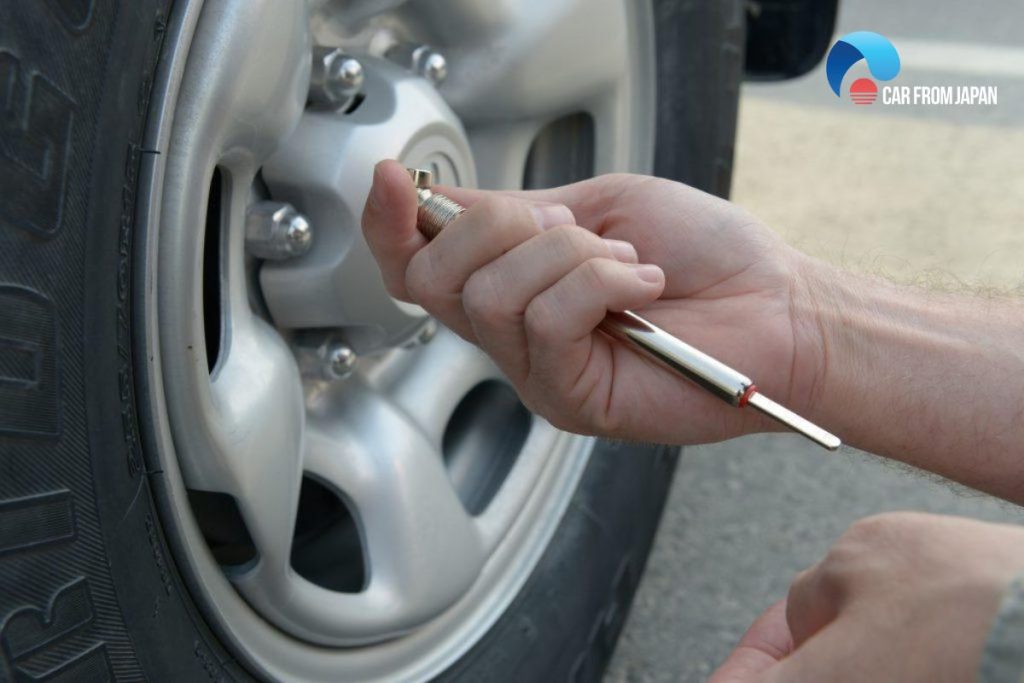
Twisted brake shield
Brake shields are always made from thin metal. If they are stuck or hit by debris, they can warp, crack, and eventually fall. Without the brake shield, the rotor and brake pads will easily wear and tear.
The result will be that you will hear the scraping or grinding when applying the brake system and at this time, your car brake will continue to be worn out and eventually damaged.
Worn-out brake components
Over time, brake components especially a brake pad tend to wear out, affecting the safety of operation and causing strange noises.
According to the mechanism, pressing the brake pedal will cause the brake pads to press against the rotor, creating resistance that causes the wheel to stop. However, excessive wear of brake pads will make a scraping noise when traveling.
Items like debris being stuck in the brakes
Sometimes during driving, dirt or some solid object can get stuck on the brake pads, which will cause a scraping sound while driving or applying the brake system.
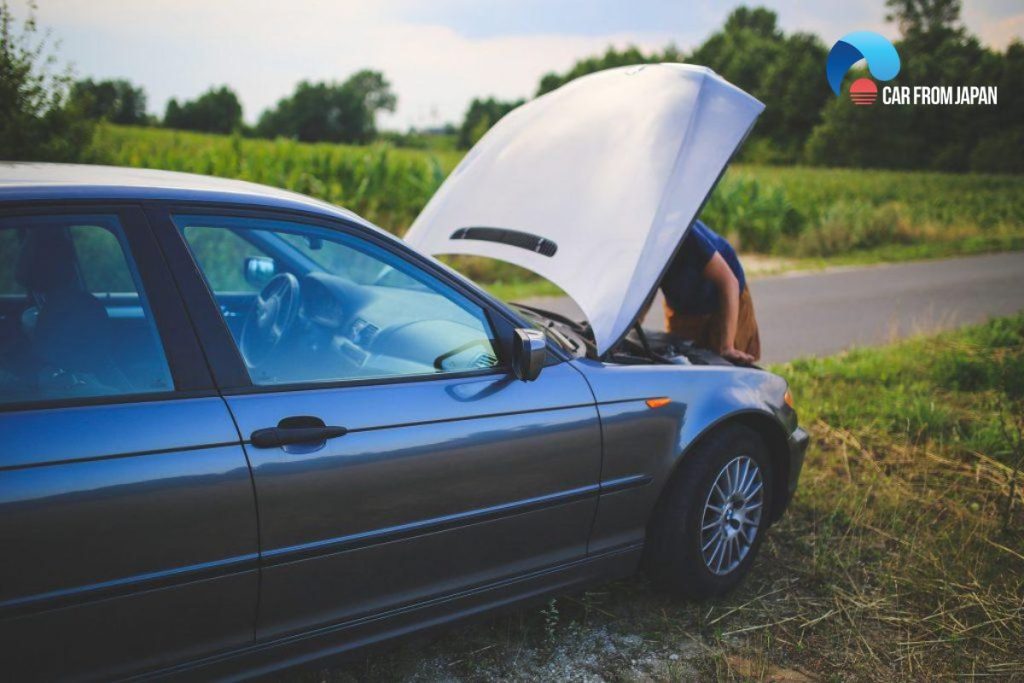
Read More: Why Your Car Makes a Grinding Noise When Braking?
Steps You Can Take To Fix The Scraping Sound While Driving
Now that you are aware of the possible reasons behind this scraping sound, it’s time to tackle it promptly.
If not done in time, it can place your car (and even you) in danger. You can follow the next guidelines to keep up with the steps to deal with the scraping sound when driving issue.
Find the sound’s orgin
Like a detective searching for clues, try to isolate where the scraping sound is emanating from.
Is it coming from the front or rear of the car? Left or right side? Does it seem to be centered underneath the vehicle? Pay close attention to how the sound changes in different driving situations.
Does it intensify when you accelerate, brake, or turn? Does it happen only at certain speeds? Gathering these details will be crucial in determining the potential cause.
Look for foreign objects
Sometimes, the simplest explanation is the correct one. Before panicking, carefully inspect your tires, wheel wells, and the entire undercarriage for any foreign objects that might be causing the scraping.
Look for rocks, sticks, plastic bags, or anything else that could be trapped or dragging against the vehicle.
Pay particular attention to areas with fresh scratches or wear marks, as these can indicate where an object might be making contact.
Gentle debris removal (if safe)
If you discover a relatively small object lodged near a wheel or brake component, you can carefully attempt to dislodge it. Try slowly reversing the car while gently applying the brakes. Repeat this process a few times.
The idea is to use the movement of the wheel and the slight pressure from the brakes to nudge the object free.
However, if the object is large, tightly wedged, or near moving parts, do not attempt to remove it yourself. Proceed to step 7.
Brake pad inspection (Metallic scraping)
A metallic scraping sound, especially when braking, often points to worn brake pads. The scraping occurs when the pad material wears down completely, and the metal backing plate begins to contact the brake rotor.
Note whether the scraping is constant or only happens during braking. A louder, more intense grinding sound suggests the pads are severely worn, requiring immediate attention.
Emergency response for brake issues
If you suspect your brake pads are worn, do not drive the vehicle. Worn brake pads significantly compromise your ability to stop safely, putting you and others at risk.
Have the car towed to a qualified mechanic immediately to have the brake pads checked and replaced.
If the scraping continues after checking for debris and ruling out brake issues, the cause is likely more complex.
It could be related to various components, such as wheel bearings, CV joints, exhaust system parts, or even loose underbody panels.
Trying to diagnose these issues yourself can be challenging and potentially lead to incorrect repairs.
Safety first
Unusual sounds while driving should never be ignored. They are often the first warning signs of potential problems.
Addressing these issues promptly can prevent more serious damage, costly repairs, and most importantly, ensure you and others’ safety on the road.
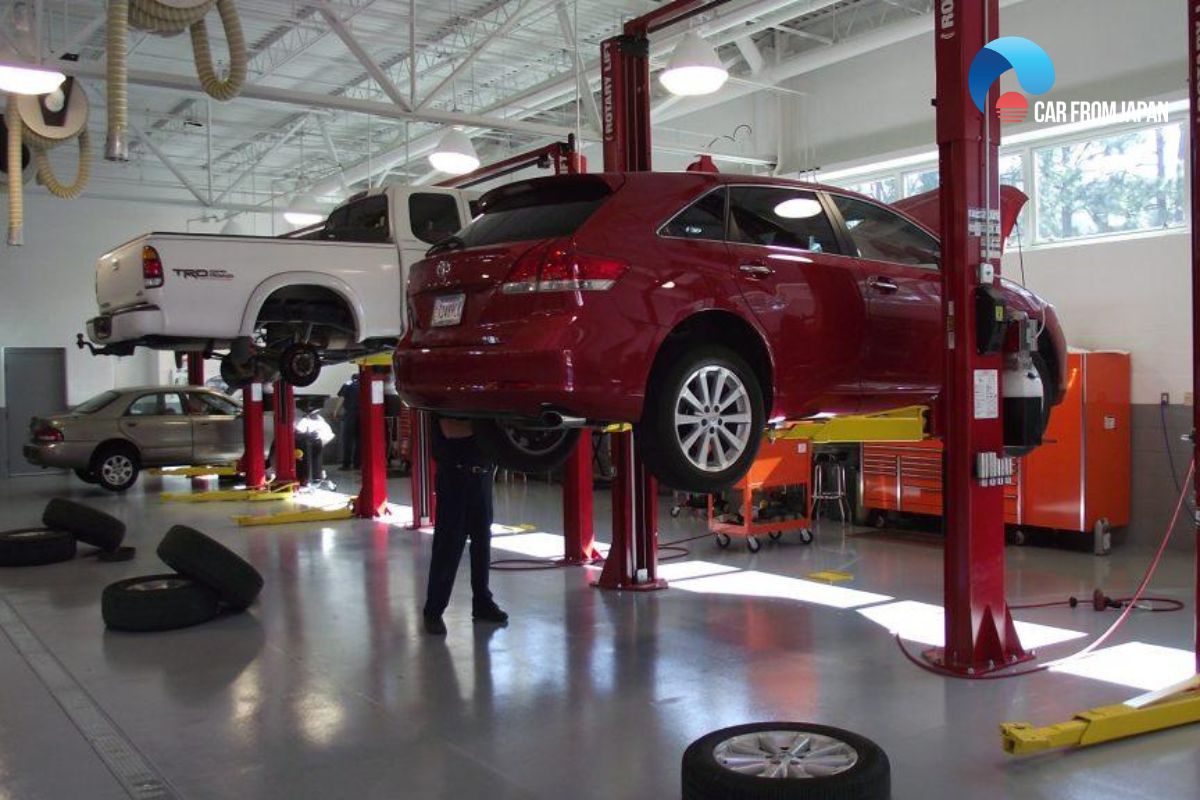
How To Prevent The Scraping Sound While Driving?
Brake inspections
Your brakes are arguably the most critical safety system in your vehicle. Regular brake inspections are crucial for identifying wear and tear before it leads to problems like scraping sounds.
Undercarriage checks
The undercarriage of your car is exposed to a barrage of road debris, rocks, and other hazards.
Periodically inspecting the underside of your vehicle for loose or damaged components can prevent scraping sounds and more serious problems.
Look for loose exhaust system parts, damaged heat shields, or dangling underbody panels. Securing or replacing these components can eliminate existing scraping and prevent future issues.
Wheel bearing maintenance
Wheel bearings play a vital role in ensuring smooth and efficient wheel rotation. Over time, they can wear down, leading to a scraping or grinding noise.
Lubricating and inspecting wheel bearings, as part of your vehicle’s scheduled maintenance, can prevent premature wear and costly repairs.
CV joint care
Constant velocity (CV) joints connect the driveshafts to the wheels, allowing them to turn at varying angles. These joints require regular lubrication to function properly.
Ensure that your CV joints are adequately greased during scheduled maintenance to prevent wear and the potential for scraping sounds.
Torn or damaged CV joint boots can also lead to contamination and premature wear, so inspect them regularly.
Avoid potholes / road debris
Navigating roads filled with potholes and debris can be a recipe for undercarriage damage and scraping sounds.
Whenever possible, avoid driving over these hazards. If you can’t avoid them entirely, slow down to minimize the impact and potential damage to your vehicle’s undercarriage components.
Careful parking
Scraping your bumpers or undercarriage on curbs or parking blocks is a common source of frustration and potential damage.
Be mindful of your vehicle’s clearance and park a safe distance from obstacles. Take extra care when parking on inclines or uneven surfaces.
Gentle braking
Aggressive braking habits can accelerate brake pad wear, leading to premature scraping sounds and the need for frequent replacements.
Practice smooth and gradual braking to extend the life of your brake pads and rotors.
Beware of unusual sounds
Any unusual scraping, grinding, or rubbing noises coming from your vehicle should never be ignored. These sounds are often early warning signs of potential problems.
Promptly investigating and addressing these issues can prevent minor problems from becoming major and costly repairs.
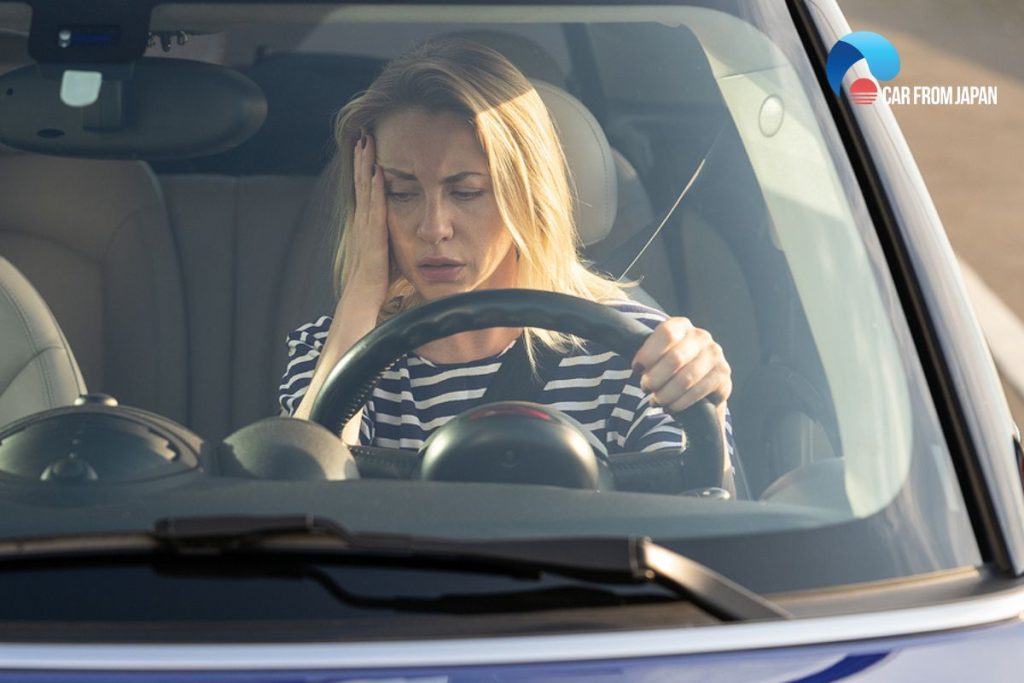
FAQs on Scraping Sound While Driving
Is it possible the sound is coming from inside the wheel?
Definitely. A small rock or piece of gravel lodged between the brake rotor and the dust shield or caliper can make a continuous scraping sound until it’s removed or falls out.
What if the scraping sound gets worse at higher speeds?
That usually suggests a rotating part is involved, like a warped rotor, loose hubcap, or even a misaligned splash guard that’s touching the wheel or brake components as they spin faster.
Can a dragging parking brake cause a scraping noise while driving?
Yes, especially if the cable is stuck or hasn’t fully released.
It can cause the brake shoes or pads to remain in slight contact with the rotor or drum, producing a dragging or scraping sound.
Could something be wrong if only one side of the car makes the scraping noise?
A side-specific sound often points to an isolated issue, like a pebble caught in one wheel, a bent brake shield, or an issue with that wheel’s suspension or brakes.
Why does the scraping only happen when I reverse?
Some brake components or shields may only shift slightly when the car is in reverse. This can indicate a loose part that flexes directionally depending on torque.
Check out this video from Eddie Carrara to see scraping noise from wheel while driving!
Conclusion
To prevent the scraping sound while driving, it’s always advisable to go for regular inspections of your vehicle. It will keep you away from such circumstances. Also, it saves you from paying big garage bills!
For more insightful Car maintenance tips, follow Car From Japan today!

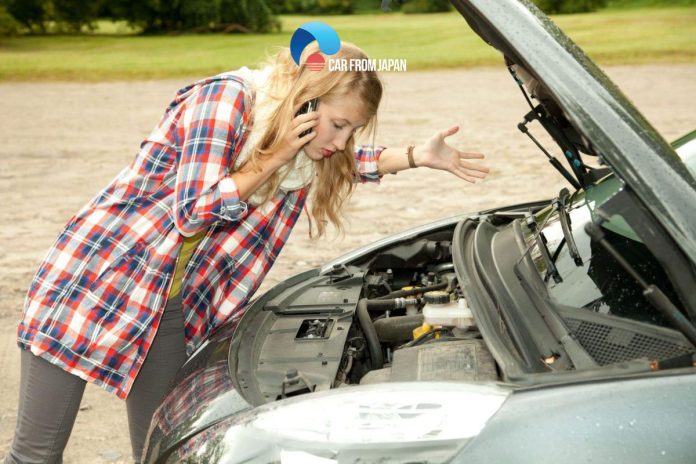


What tips when the engine must suddenly off when driving especially on high hill
Hi Viane, thanks for your comment. Here’s one good tip for you to find the exact article talking about your car problem on our website. You can go to Google.com and search with the keyword “car engine stops suddenly carfromjapan” and in the top results you can see serval contents we discussed about this problem. You can use this tip for any circumstance with the formula: [your keyword about car problem] + “carfromjapan” and search in Google.
I have a Jeep Compass that seems to be very rusted around the roaders and front brake pads. We have replaced the roaders and brake pads but I still get a grinding noise when I’m going under 30-40 miles an hour for a second and then it stops. I’ve had tire problems as well like skidding when I make a really slow turn. Any help??
I have a Jeep Compass that seems to be very rusted around the roaders and front brake pads. We have replaced the roaders and brake pads but I still get a grinding noise when I’m going under 30-40 miles an hour for a second and then it stops. I’ve had tire problems as well like skidding when I make a really slow turn. Any help?? Thanks in advance